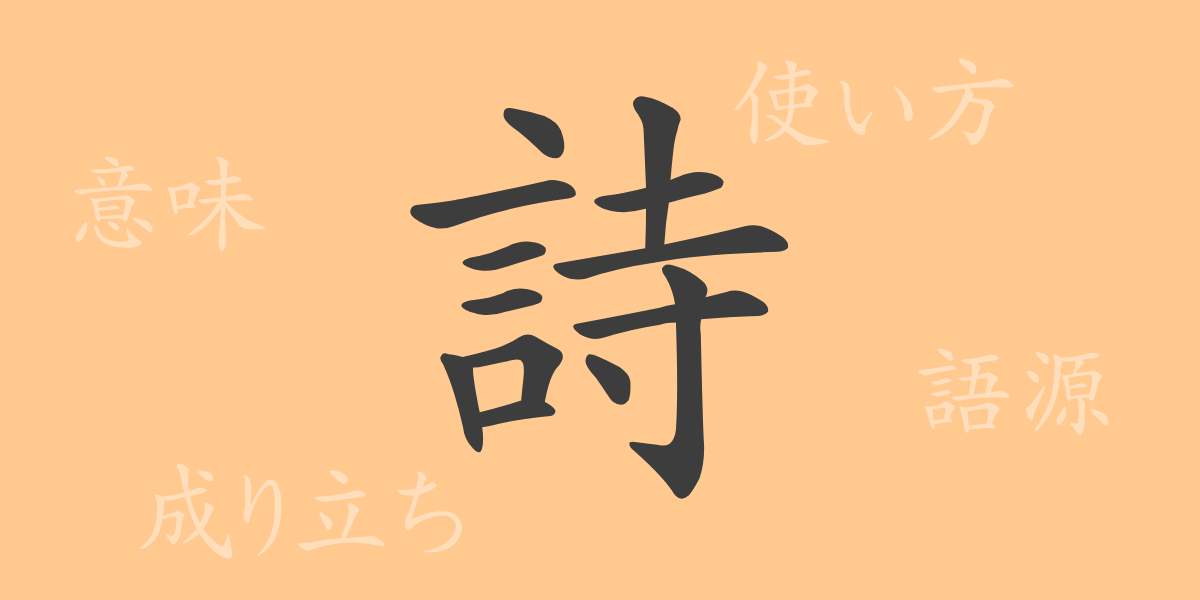Embark on a journey to unravel the beautiful world woven by characters. The common kanji “詩(し)” in Japanese has the power to delicately depict emotions and landscapes, speaking directly to our hearts. In this article, we delve into the charm of “詩(し)”, exploring its origins, modern usage, and related idioms and proverbs. Let’s uncover the secrets hidden in this single character that conveys the spirit of poets.
Origins of 詩(し) (Etymology)
The character “詩(し)” has its origins in classical Chinese literature. The kanji “詩(し)” is composed of the radical “言(ごんべん)” representing words and “寺(てら)” meaning temple or beautiful. Thus, it signifies beautiful words, or poetry. In ancient China, poetry was closely linked to songs, and the character was used to express the beauty of words recited to music. Over time, poetry evolved as a literary form to delicately depict emotions and natural scenes.
Meaning and Usage of 詩(し)
In modern Japanese, “詩(し)” primarily refers to a genre of literature. Poetry uses rhythm, sound, symbols, and metaphors to express the author’s inner world and the scenes they wish to depict. The adjective “詩的(してき)” is used to describe something beautiful and moving, with a unique atmosphere similar to that found in poetry. Additionally, poetry is metaphorically used to praise the beauty of life and nature.
Readings, Stroke Count, and Radical of 詩(し)
The basic information about the kanji “詩(し)” is as follows:
- Reading: The on’yomi (音読み) is “シ” (shi), and there is no kun’yomi (訓読み).
- Stroke count: It has a total of 13 strokes.
- Radical: The radical is “言(ごんべん)” representing words.
Idioms, Phrases, and Proverbs Using 詩(し)
Many idioms and phrases involving “詩(し)” are related to literature and artistic expressions. Here are some examples:
- 詩情(しじょう) – Poetic sentiment or emotion, often used to express the beauty of natural scenery or artistic works.
- 詩歌(しか) – A term combining poetry and songs, referring to traditional Japanese songs or songs with poetic elements.
- 詩吟(しぎん) – The art of reciting poetry with a special intonation, or the technique of such recitation.
- 詩人(しじん) – A person who writes poetry or possesses poetic talent.
Conclusion on 詩(し)
The world encapsulated in the single kanji “詩(し)” symbolizes the power and beauty of words. Poetry is a powerful tool for expressing various emotions and the beauty of nature, holding a significant place in Japanese culture. Poetic expressions enrich our daily lives, enhancing our sensitivity and appreciation of beauty. By exploring the meanings and usage of “詩(し)” and its related idioms and phrases, you too can find poetic moments in everyday life.

























